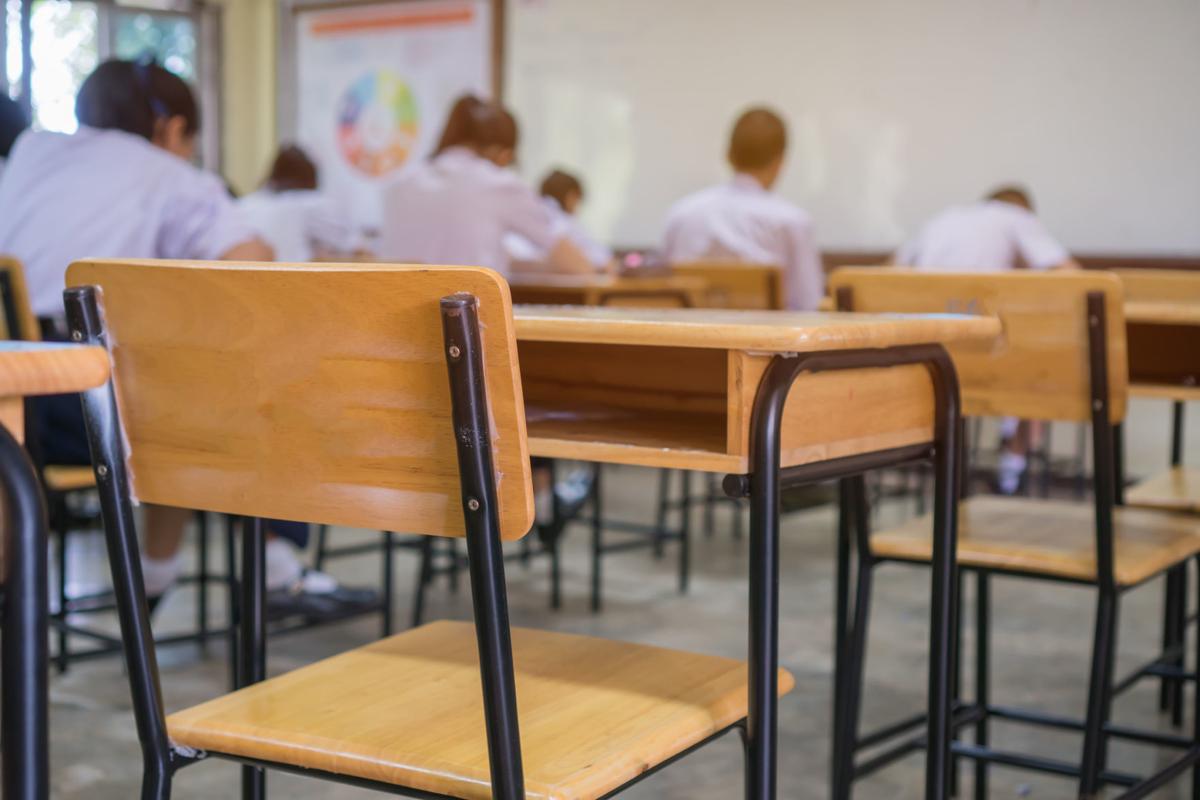Tucson-area schools are working to create contingency plans in the unlikely event of school closures due to the new coronavirus.
In preparation for a possible COVID-19 epidemic, Pima County Health Department and education officials are focusing on hygiene and encouraging sick students and school staff to stay at home.
School closures could have severe and adverse effects. The economic and social disruption could be very large, says Health Department Interim Director Bob England.
“I am not planning on closing any schools,” he said. “I think it could be counterproductive. … I would probably put a whole bunch of kids a year behind because we’d be closing for the rest of spring.”
Closing schools could put parents and guardians who don’t have child care at risk of losing their jobs. A lack of income is one of the biggest factors affecting health, England says.
“You could easily do more harm than good by closing a bunch of schools,” he said.
England thinks the epidemic will pan out like the bad flu season two years ago, where 80,000 Americans died of flu and related complications. As of Tuesday, March 3, Arizona had two documented cases of COVID-19, both in Maricopa County.
Most schools already have an influenza pandemic plan ready to implement, England says.
Nationally, most districts already have plans to deal with natural disasters, flu outbreaks and other emergencies, and many have planned for widespread infections before, most notably during the 2009 H1N1 influenza pandemic. But most have never faced the prospect of closing for weeks at a time, as has happened in China and other countries working to prevent the virus from spreading.
The virus prompted Japan’s prime minister to ask all of the nation’s schools to close for a month as officials work to control the spread of the new virus in the country.
Pima County officials sent letters to all district and charter schools, as well as a number of private schools, with basic information on the virus and how to reduce risk of spread.
The virus primarily spreads like a common cold or flu. Health officials recommend that schools encourage thorough hand washing, covering coughs and staying at home when not feeling well, as well as routinely disinfecting high-touch surfaces like doorknobs and having a plan for if school closures do occur.
That plan should include addressing food insecurity for students who rely on schools for breakfast or lunch, identifying at-home learning opportunities and assuring that guardians who can’t take time off work have a plan to care for their children.
Tucson’s largest school district, TUSD, is finalizing a plan for potential school closures, which it will tentatively share at the March 25 governing board meeting, said TUSD Superintendent Gabriel Trujillo.
A large component of the plan was employed during the Red for Ed teacher walkouts, including making sure any missed instruction was tracked and made up for if necessary and that there were frequent and widespread updates on the status of the closure, Trujillo said.
TUSD did cancel a student summer trip to South Korea because of the new coronavirus, due to travel warnings from the U.S. Department of State and Centers for Disease Control and Prevention.
Vail School District had to cancel a student trip as well. The tour company working with the district gave the 22 Empire High School students, who already paid $3,750 each for a spring break trip to Japan, vouchers for future trips, said Vail spokeswoman Darcy Mentone.
Vail is also identifying alternative learning locations in the event they need to separate vulnerable children who could be more susceptible to viruses, the same way the district did during a whooping cough outbreak eight years ago, Mentone said.
But primarily, like all the local districts, Vail is focusing on common-sense measures of not contracting and spreading illness.
“It’s cold and flu season already,” Mentone said. “We go through this every year, so this year, we’re just redoubling our efforts.”
In the Tanque Verde School District, on top of hand washing and recommending the use of hand sanitizer, the district will be sanitizing shared classroom technology, door knobs, light switches and classroom faucet handles daily, said spokeswoman Claire Place. They will disinfect buses twice daily. The district will also discontinue attendance awards for the duration of the threat.
Marana Unified is reevaluating programs such as attendance awards and has also added additional disinfectant cleaning measures, says spokeswoman Tamara Crawley.
Catalina Foothills Schools are taking the same heightened hygiene and sanitation measures and are also prepared to postpone or cancel large school events, increase space between students in classrooms, limit access to campus by nonessential visitors, temporarily dismiss students from school, and accommodate vulnerable staff and students with alternative class space or working from home if possible, says spokeswoman Julie Farbarik.
Understanding of the virus is still in the early stages.
Although we know the virus is very contagious, it’s “almost certainly” less deadly than the current statistics show, England says. He explains that health organizations, nationally and internationally, don’t have the capabilities to screen a lot of people. Therefore, there are probably many mild cases that go unreported, making the actual death rate lower than current estimates.
The virus seems to have a minimal impact on children, said Arizona Schools Chief Kathy Hoffman in a letter to school leaders.
“The elderly and those with compromised immune systems are most at-risk,” she said. “Nevertheless, in order to keep our schools and students healthy, we, as always, recommend that students and staff with respiratory symptoms or illness stay at home.”





